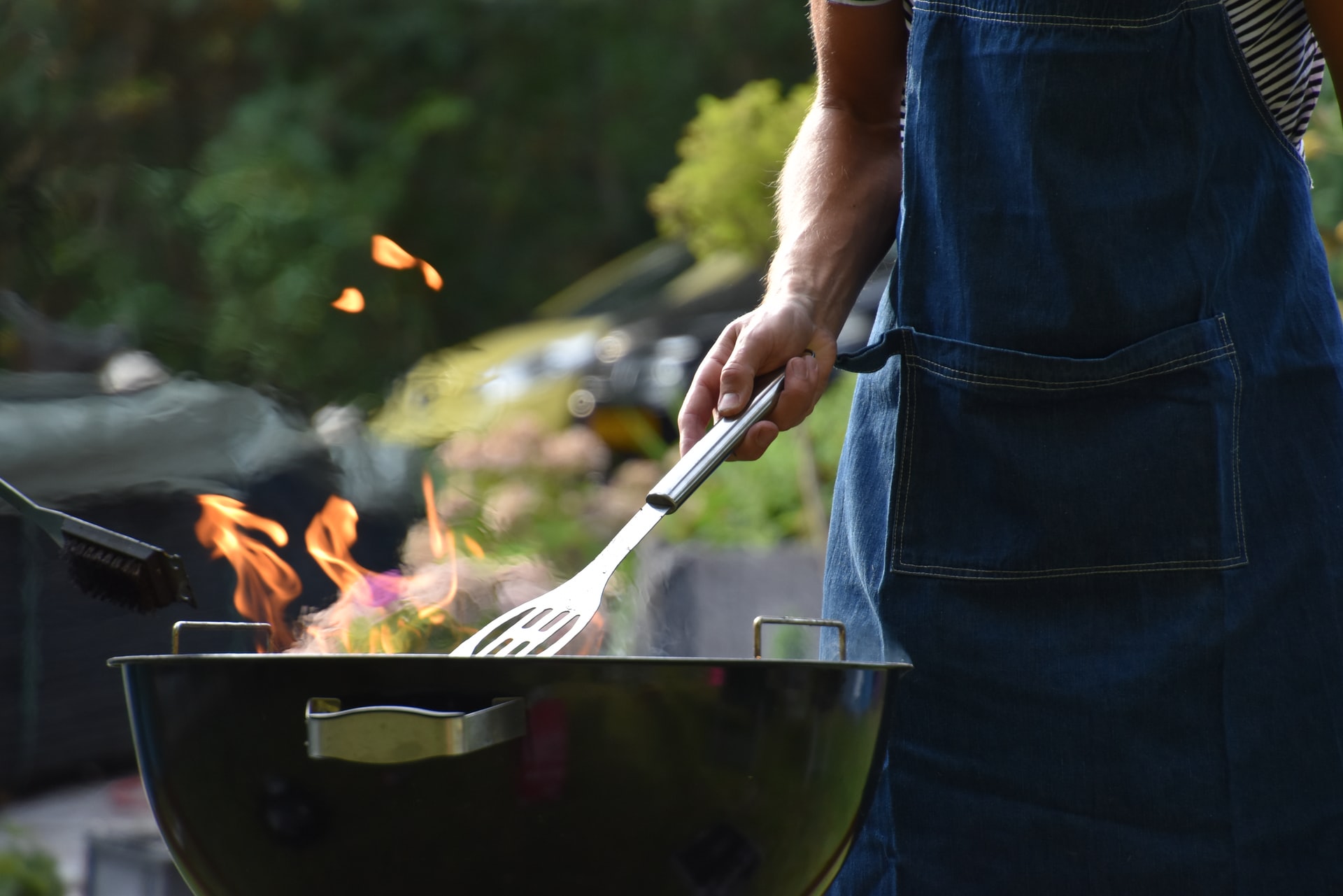Do you know the feeling when you want to grill outdoors, but the weather isn’t helping? It can be frustrating, no joke! That’s when a crazy-sounding idea comes to mind: Let’s take our propane grill indoors!
Now, you need to slow down a bit until we answer the question: can you use a propane grill indoors?
Is It Safe for Me to Use a Propane Grill Indoors?
No, it isn’t safe. Propane grills aren’t designed with indoor use in mind. Things like your stove or cooktops are safe; they’re made to be used under one roof with you. Propane grills, however, are dangerous to use indoors for three reasons:
- They pose a fire hazard
- There’s a chance of a gas leak happening
- Carbon monoxide poisoning is a risk
Let’s unpack each of those a little bit!
Why Do Propane Grills Pose a Fire Hazard Indoors?
Propane grills pose a fire hazard because of the excessive heat.
Unlike your indoor oven, propane grills aren’t insulated. They give off tons of heat, which can easily make any of the house items catch fire. Things like curtains and any clothes thrown nearby are particularly prone to this.
Gas Leaks From Using Propane Grills Indoors?
Gas lines connected to your oven are stationary, so they’re not subjected to wear and tear from moving them too much. This is more than we can say about the gas lines of propane grills. You move them back and forth according to where you want to use the grill.
Moving gas lines significantly increases the risk of leaks. It’s less dangerous when used outdoors, as the gas will likely disperse in the air. However, indoors, the gas will be trapped.
Aside from the lines, gas leaks could come from the tank itself or the tank valve. This is why it’s highly inadvisable to store gas tanks inside your house unless you’re 100% sure that they’re entirely empty.
What makes gas leaks all the more dangerous is that carbon monoxide detectors do not detect them. Why is that? Simply, carbon monoxide results from the burning of gas. That’s what sensors are designed to detect. The gas itself, however, has no carbon monoxide prior to burning, so it goes undetected.
Carbon Monoxide Poisoning When Using Propane Grills Indoors?
Stoves and ovens are designed to vent outside the house. Therefore, they keep carbon monoxide from building up inside your home.
Propane grills, however, vent straight from their fireboxes. Without proper ventilation, the sneaky carbon monoxide can quickly fill the air around you. Why sneaky? Because, unlike gas, carbon monoxide has no smell.
No wonder it’s the number-one cause of death from accidental poisoning in the US. That’s why you should install carbon monoxide detectors in your home. Also, never use your propane grill in a poorly ventilated space, like inside the house.
Can I Use My Propane Grill in the Garage?
Since you can’t use propane grills inside your house, you might ask if you can do so in the garage. Unfortunately, the answer to that will also be no.
The National Fire Protection Association has made it clear that you should only use propane grills outdoors. The association also went on to stress that you can’t use propane grills under eaves, which means you can’t use them under covered porches, either. Plus, they recommend keeping the grills at least three feet away from any children or pets.
How Far Should Gas Grills Be From My House?
The US Consumer Product Safety Commission (CPSC) recommends keeping the grill at least 10 feet away from the house. It should be the same distance away from any other building in the area as well. The CPSC also backs up the fact that you can’t use propane grills in the garage or under the porch.
What’s the Alternative for Propane Grills When Cooking Indoors?
If you’re looking for an alternative to propane grills, look no further than electric ones. These electric grills are perfect for indoor cooking, as long as they’re the smokeless type.
Sure, there will be little smoke, similar to cooking on a stove. However, smokeless grills include the smoke-extraction fan, which serves to keep the smoke to a minimum. Being electric, these grills have no risk of gas leaks or carbon monoxide poisoning.
Are There Any Risks Involved in Using Electric Grills Indoors?
While fairly safe, you should treat electric grills with some caution. You’ll want to have a couple of safety precautions in mind. That includes creating a distance between the grill and any potentially flammable material.
Also, remember to check all the cords and connections before use and replace any damaged ones. Make sure to unplug the electric grill when it’s not in use as well. Finally, turn off the grill from the knob before plugging or unplugging it.
How to Choose the Best Electric Grill for You?
Two types of electric grills can be used indoors: contact grills and open ones. Open grills have a lid that doesn’t come in contact with the food, and some don’t have a cover altogether. They mimic the outdoor propane grills, giving a very similar taste to the food.
Contact grills, on the other hand, have a lid that comes in contact with the food. With pressure applied to food from both sides, contact grills are perfect for sandwiches and burgers. These grills also cook way faster, thanks to the heat applied above and underneath.
Final Words
The taste of grilled food is quite unparalleled. What makes things all the more enjoyable is the vibe we get from arranging barbecue parties. That’s why it’s such a disappointment when the weather doesn’t allow cookouts. Here, we should be careful not to bring the barbecue party inside.
Propane grills have proved dangerous when used indoors. There’s a fire hazard, a gas leakage risk, and a chance of carbon monoxide poisoning. That’s why smokeless electric grills are the way to go when grilling indoors. Your barbecue party isn’t doomed after all!

